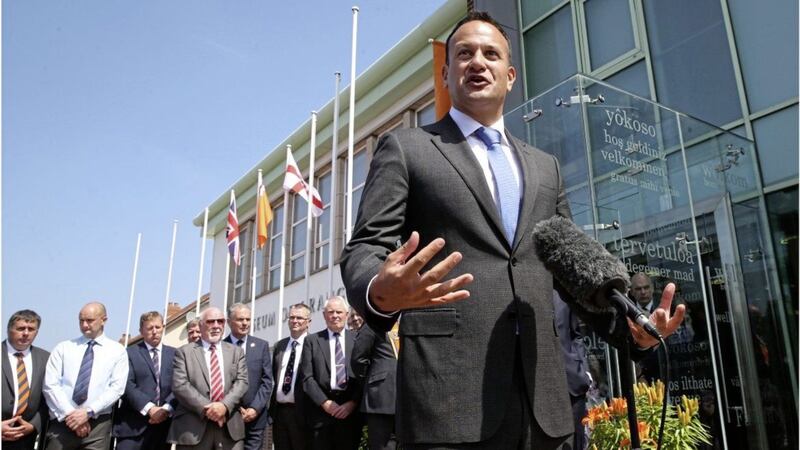Be careful what you wish for when arguing for a border poll.
It has two inherent dangers. One is that nationalists may well lose it. This would leave them as perpetual rebels without a cause and render a united Ireland a theoretical destination towards which Britain would allow them to strive, confident in the knowledge that they would never get there.
But winning presents an equally serious challenge. Voting for the north's exit from the UK (can we call it Nexit?) would be remarkably similar to the Brexit referendum - everyone would know what they were voting against, but not necessarily what they were voting for. Nexit would mean Nexit but, like Brexit, what would that mean?
"Rubbish", you say, "we would be voting to join a united Ireland." That depends on what you mean by a united Ireland. To you and me it means the governance of a single unitary state by a national government in Dublin. So, if there is a 'Yes' majority, does Leo Varadkar stop being a neighbour and become an invader?
Not according to that blessed trinity of republicanism: Sinn Féin, Fianna Fáil and Republican Sinn Féin. All three advocate a united Ireland, but a single unitary state is not exactly a priority for them.
Two years ago in Towards a United Ireland, SF said that unity could involve continued Stormont devolution (presumably from Dublin and assuming there is a Stormont) a federal Ireland, a confederal Ireland or other unspecified arrangements.
The "other unspecified arrangements" suggests that a united Ireland can be anything SF wants it to be. So when the IRA said it was a united Ireland or nothing, it certainly left the party plenty of room to manoeuvre.
But the more interesting options are the federal or confederal Ireland. The difference is that while membership of a confederation is voluntary (like the EU), membership of a federation is not (like the USA).
So the north could voluntarily join in a confederation with the south, but then leave if it wanted to, which suggests that we could pop in and out of a confederal Ireland (and presumably the EU) as we wished.
A federal solution was first proposed by Sinn Féin in Éire Nua (New Ireland) in the 1970s, but it was dropped in favour of a single unitary state when Gerry Adams ousted Ruairí Ó Brádaigh as party president.
Now it is back again as a SF option in which the provinces, including a nine-county Ulster, would form four federal states under a central government in Athlone. (Would the nine county Ulster regional parliament have power-sharing and petitions of concern - oh, and academic selection?)
Republican SF supports a federal solution and apparently it is also the Continuity IRA's policy. (Do they end their meetings with shouts of "God save a federal Ireland"?)
Fianna Fáil has said that a united Ireland would have two parliaments, in Belfast and Dublin (and presumably a border in between). To support this idea, the party promised last March to produce a 12-point plan for a united Ireland "within months". Months later, there is no sign of it, a bit like the SDLP's Commission for a New Ireland, which was announced two years ago.
Fine Gael vaguely supports a united Ireland, which prompted Gerry Adams to say that Leo Varadkar had a "better position" on the north than Micheal Martin, even though Mr Varadkar opposes a border poll. (And you think English conservatives are confused over what Brexit means?)
So where are the unionists in all this? Sinn Féin says that a united Ireland could involve "expression being given to the relationship between unionists and the British monarchy". (Maybe that's what Gerry Kelly and Prince Charles discussed this week.)
It could also involve weighted parliamentary majorities in relation to legislation on "fundamental issues" which would be identified and agreed in advance of reunification. So if we are going to have a border poll, should we not identify and agree those fundamental issues (whatever they are) right now?
And then there is the problem which nationalists have created for themselves by arguing that the north should be able to opt out of the UK-wide Brexit result. In the event of a 'Yes' Nexit result, would a 'No' vote in Ballymena, for example, allow it to remain in the UK?
While you and I have disagreed over many things, we could certainly agree to vote against the north remaining in the UK in a border poll. If we win, we can then sit down together and yarn away the years watching others decide what we actually voted for. Roll on Nexit.









